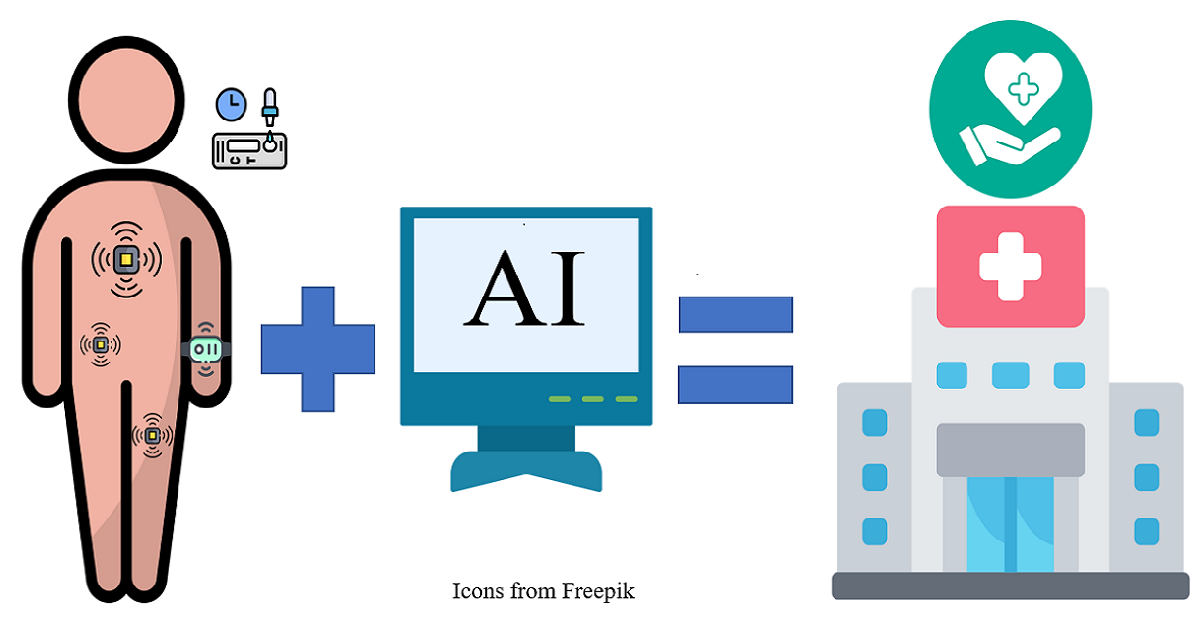AI-Enabled Biosensor Technologies for Boosting Medical Applications
A special issue of Biosensors (ISSN 2079-6374). This special issue belongs to the section "Biosensor and Bioelectronic Devices".
Deadline for manuscript submissions: 30 September 2025 | Viewed by 500

Special Issue Editors
Interests: microwave sensors; glucose sensors; resonators; quality factor; dielectric characterization; non-invasive biosensors; electromagnetic fields
Special Issues, Collections and Topics in MDPI journals
Interests: biomedical engineering; electronics; monitoring devices; machine learning; robotics; automation
Special Issues, Collections and Topics in MDPI journals
Special Issue Information
Dear Colleagues,
Biosensing technologies find a myriad of applications in many aspects of modern society. Among all these, its quintessential use in medical, biological and biomedical contexts has been actively investigated and exploited during the last decades. The range of available biosensor techniques is wide, from biochemical sensors to reagent, ultrasound, electronic, optic, optoelectronic, or electromagnetic sensors, and show promising potential for unprecedented advancements. The development of novel biosensing technologies for future medical applications is therefore considerably alluring.
In the current times, researchers are starting to master all the aspects related to the physical implementation of biosensors with different technologies. Current science provides effective solutions for challenging areas such as sensitive and selective measurement, efficient implementation, optimized design, wearable and implantable devices, powering, data sensing and recording, and transmission and reading. Consequently, the main limitations of the final applications are seen in data processing or interpretation. It is in this context that modern artificial intelligence (AI) techniques rise to potentially add the finishing touches. Their pattern recognition and data processing capabilities are unmatched, and they open the door to previously unthinkable applications for these technologies.
In this multidisciplinary topical collection, we seek to compile insightful contributions that explore the combinations and possible synergies of these two disciplines—biosensors and AI processing techniques—with appealing future prospects for the biomedical realm. We anticipate novel ideas, innovative devices, and cutting-edge approaches that will expand the current boundaries of scientific knowledge. Prospective researchers are encouraged to submit their original works and comprehensive review articles, contributing to the advancement of this thrilling research field. By harnessing the convergence of biosensors and AI, we expect ground-breaking advancements that address critical challenges within the medical and biomedical domains. Join us in this Special Issue as we propel the future of healthcare towards unprecedented technological enhancement.
You may choose our Joint Special Issue in Sensors.
Dr. Carlos G. Juan
Dr. José María Vicente-Samper
Guest Editors
Manuscript Submission Information
Manuscripts should be submitted online at www.mdpi.com by registering and logging in to this website. Once you are registered, click here to go to the submission form. Manuscripts can be submitted until the deadline. All submissions that pass pre-check are peer-reviewed. Accepted papers will be published continuously in the journal (as soon as accepted) and will be listed together on the special issue website. Research articles, review articles as well as short communications are invited. For planned papers, a title and short abstract (about 100 words) can be sent to the Editorial Office for announcement on this website.
Submitted manuscripts should not have been published previously, nor be under consideration for publication elsewhere (except conference proceedings papers). All manuscripts are thoroughly refereed through a single-blind peer-review process. A guide for authors and other relevant information for submission of manuscripts is available on the Instructions for Authors page. Biosensors is an international peer-reviewed open access monthly journal published by MDPI.
Please visit the Instructions for Authors page before submitting a manuscript. The Article Processing Charge (APC) for publication in this open access journal is 2200 CHF (Swiss Francs). Submitted papers should be well formatted and use good English. Authors may use MDPI's English editing service prior to publication or during author revisions.
Keywords
- biosensors
- reagents
- chemical sensors
- electronic sensors
- optical sensors
- electromagnetic sensors
- biomedical applications
- artificial intelligence
- deep learning
- machine learning
- medical imaging
Benefits of Publishing in a Special Issue
- Ease of navigation: Grouping papers by topic helps scholars navigate broad scope journals more efficiently.
- Greater discoverability: Special Issues support the reach and impact of scientific research. Articles in Special Issues are more discoverable and cited more frequently.
- Expansion of research network: Special Issues facilitate connections among authors, fostering scientific collaborations.
- External promotion: Articles in Special Issues are often promoted through the journal's social media, increasing their visibility.
- e-Book format: Special Issues with more than 10 articles can be published as dedicated e-books, ensuring wide and rapid dissemination.
Further information on MDPI's Special Issue policies can be found here.







